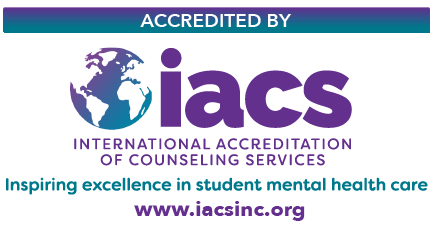Helping a Student in Distress
Faculty and staff play an important roll in creating a safe and open environment on campus. Often times students approach a professor, advisor, or staff person for guidance before any other department, and it can be a challenge to know what to do. Helping students with mental health concerns can be doubly challenging, as well as a little intimidating at first. We've provided some general information below about how you can help a student in need, but do not hesitate to contact us directly if you would like to consult with a mental health counselor. You may contact us at 870-972-2318 or counseling@astate.edu.
What are some common signs that may indicate a referral to the Wilson Counseling Center is needed?
Here is a partial list of things that may indicate a student could benefit from counseling, though if you are having doubts, it’s usually better to go ahead and discuss their options with them and provide support.
- Suicidal thoughts or statements.
- Indications of self-harm.
- Sudden shifts in mood/demeanor that are out of the ordinary.
- Abrupt changes in hygiene or appearance.
- Suspected/known drug or alcohol abuse.
- Social isolation.
- Difficulty controlling anger.
- Excessive fatigue.
How should I support a student in distress?
- Approach the student in private.
- Allow the student to talk about their concerns while listening intently.
- Do not make promises of confidentiality. Always be mindful of what you must report.
- Avoid criticizing or judging.
- Do not pressure yourself to “fix” an issue for them. Just listening and providing information on resources on/off campus can be immensely valuable.
- Encourage the student to reach out to the counseling center. If they are open to it, you could even offer to walk there with them.
- While it is preferable that the student reaches out on their own, referring them through Pack Support prompts us to follow up with them directly.
Will I receive updates from the counseling center after referring a student?
Once a student enrolls in services, all of their information is legally protected by HIPPA and state law. We are unable to provide information or updates to any other party without written permission to do so. While we can't provide updates without permission, we encourage you to follow up with the student directly. Your student trusted you enough to discuss their personal matters with, and you can provide valuable support to them by simply keeping the dialogue open.







